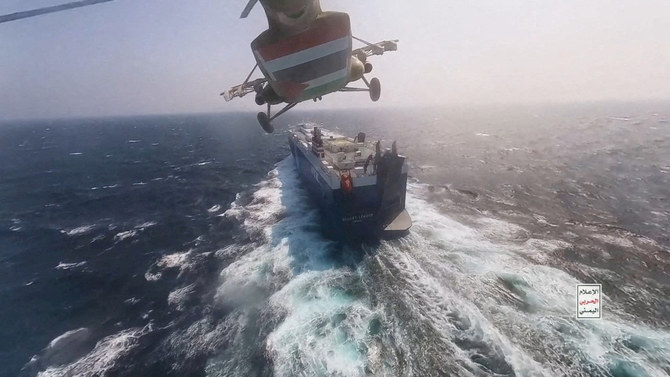WASHINGTON: More than 20 countries have joined the US-led coalition to protect Red Sea shipping from attacks by Yemen’s Houthi rebels, the Pentagon said on Thursday.
The Iran-backed Houthis have repeatedly targeted vessels in the vital shipping lane with strikes they say are in support of Palestinians in Gaza, where Israel is battling militant group Hamas.
“We’ve had over 20 nations now sign on to participate” in the coalition, Pentagon spokesman Major General Pat Ryder told journalists.
Ryder said the Houthis are “attacking the economic wellbeing and prosperity of nations around the world,” effectively becoming “bandits along the international highway that is the Red Sea.”
Coalition forces will “serve as a highway patrol of sorts, patrolling the Red Sea and the Gulf of Aden to respond to — and assist as necessary — commercial vessels that are transiting this vital international waterway,” he said, calling on the Houthis to cease their attacks.
The latest round of the Israel-Hamas conflict began when the Palestinian militant group carried out a shock cross-border attack on October 7 that killed around 1,140 people in Israel, according to an AFP tally based on Israeli figures.
Vowing to destroy Hamas, Israel began a relentless bombardment of targets in Gaza, alongside a ground invasion, which Gaza’s Hamas government on Wednesday said has killed at least 20,000 people.
Those deaths have provoked widespread anger in the Middle East and provided an impetus for attacks by armed groups in the region, including the Houthi strikes on Red Sea shipping.
The United States announced the multinational Red Sea coalition on Monday, while the Houthis warned two days later that they would strike back if attacked.














